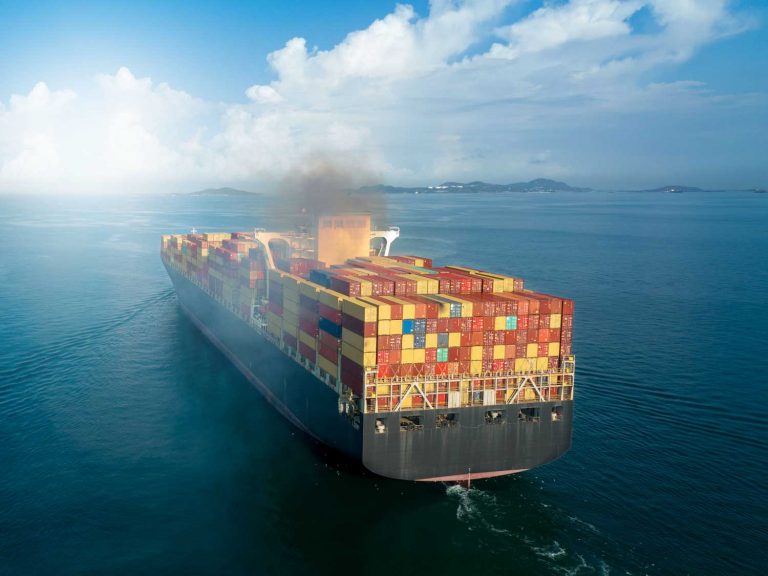
Date:
Carbon targets may add more cost for shippers
Environmental efficiency, more ambitious carbon emission targets, the possible introduction of a carbon levy and the EU’s emissions trading scheme all require investment by the container shipping lines’ and they will want to pass that investment and increased fuel cost on.
Just weeks after IMO 2023 launched, there are suggestions that the International Maritime Organisation may increase the current objective of a 50% reduction in carbon emissions by 2050 to 100%, requiring more carrier investment and the introduction of a carbon levy, and with the EU rolling out its emissions trading scheme from next year, the combination is likely to drive up sustainable fuel costs.
To achieve the new target, carriers will need to invest heavily in environmentally friendly vessels and fuel ‘scrubbing’ refits and while costs related to decarbonisation are difficult to estimate, forecasts related to the EU Emissions Trading System (ETS) suggest that on the major Asia-North Europe route, bunker costs and emission-related taxes could increase from $312 per 40ft container for very low-sulphur fuel oil today to $568, or about $458/40ft using methanol, a low-carbon fuel.
The Loadstar reports that methanol-powered ships could have a cost advantage over conventional power of $110/40ft as early as 2026, due to the carbon charges – with the caveat that figures would largely depend on market conditions and bunker fuel price over time.
James Hookham, director of the Global Shippers’ Forum, told The Loadstar that discussions for market-based measures represented a clear risk that shipping lines would pass on any tax directly to shippers through BAF surcharges, as the introduction of low-sulphur fuel regulation three years ago saw the costs borne by shippers and not by carriers.
CLECAT, the European association of freight forwarders, believe that it is for the lines to pay for the carbon they use not their customers. The shippers will pay more, as the cost of shipping will increase, but the type of fuel used by the carrier is their choice, so any carbon tax should be borne by the line.
However, according to the World Shipping Council, which represents the shipping lines, new regulations should apply equally to all, and that there needs to be a standard agreement on what constitutes a ‘green fuel’, which includes life cycle emissions, and market-based measures which provide a cost incentive for the lines to use low-carbon fuels.
There will be many factors that influence the cost impact of the carriers’ environmental investments, the adoption of cleaner fuel and the various carbon levies and we will continue to do everything we can to mitigate their impact on our customers.
The ‘free of charge’ Eco module, that sits in our MVT supply chain platform, monitors the emissions of every shipment through our network, by every mode, globally.
The module is under continuous development, with regular updates, including distance calculators, that can be adapted to measure liabilities under the new EU ETS regime.
To request a demo or discuss your requirements, please EMAIL Simon George, who can outline our ECO strategies and offset projects.
